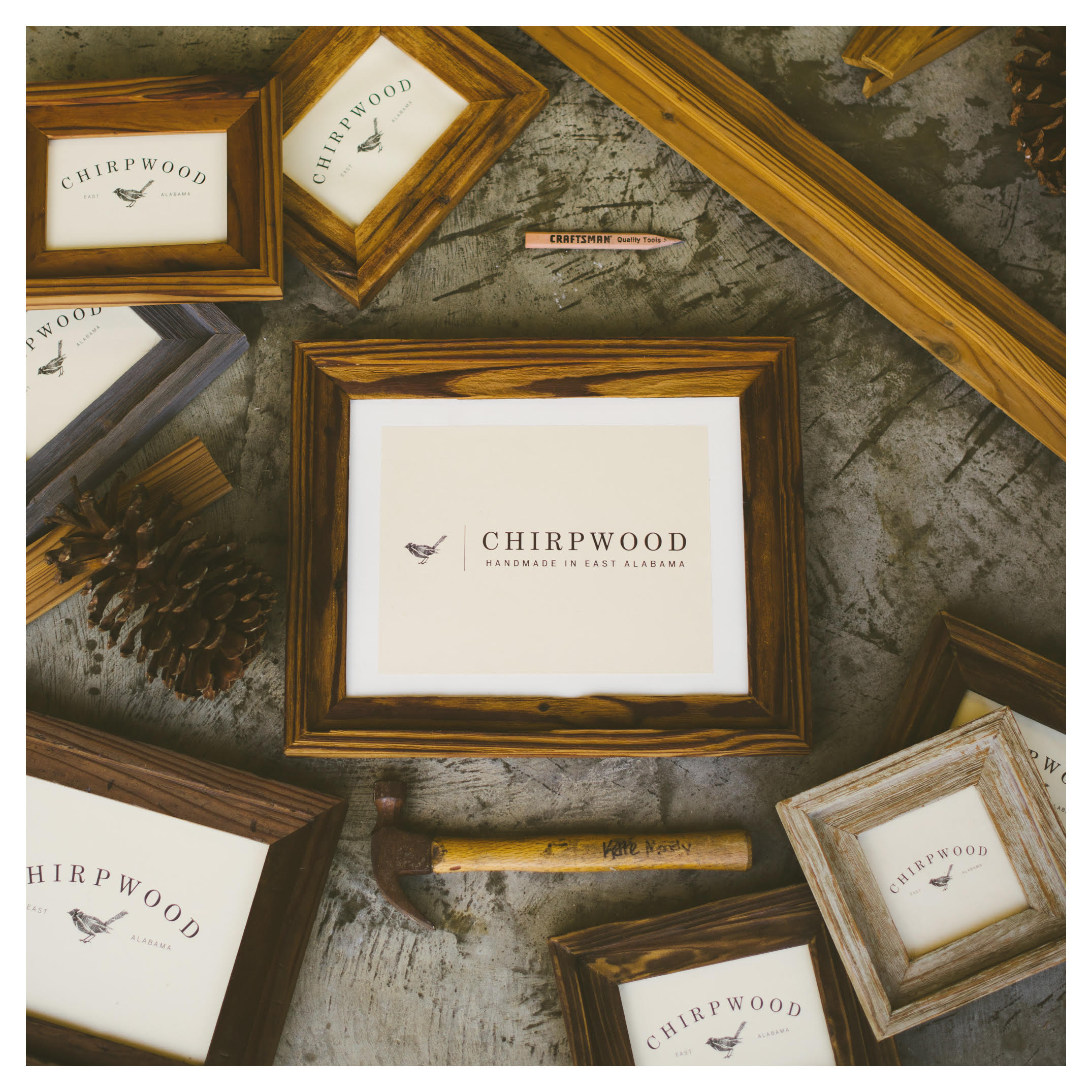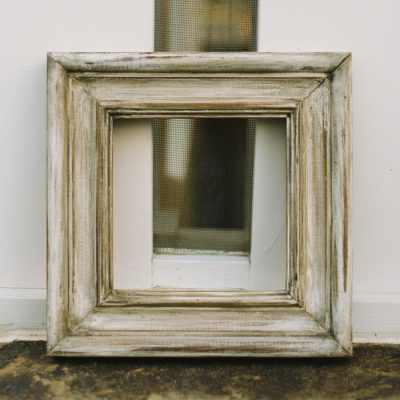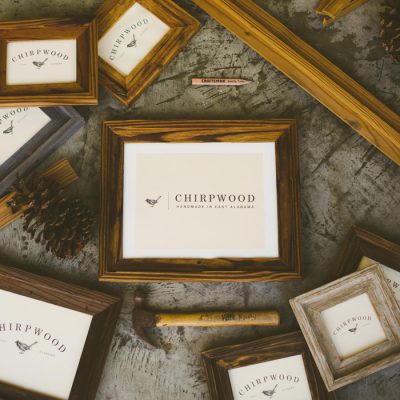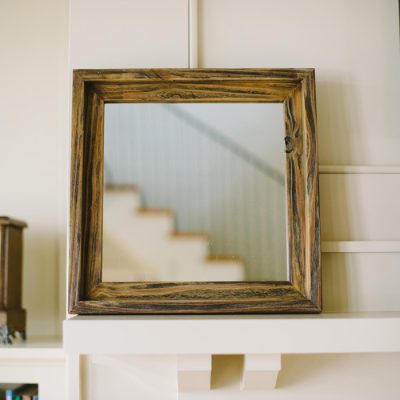A folding chalkboard with “Chirpwood” barely visible from South 10th Street in Opelika gives little clue to the artistic treasures inside the building. While there is a framed sign in the works, Scott Moody has created unique handsome frames showcasing art from a variety of artists in East Alabama eager to have a location to display their talent. An added bonus for Moody is that the shop provides the opportunity to donate half his profits to a mission that tugs at his heart, Bridge2Rwanda.

Moody admits he has an odd skill set. He has worked in engineering and taught mathematics in high school. “I am a typical Southern male,” he says, “I like football and guns, but I also like artistic things.”
Growing up in small town Columbiana, Moody attended Auburn University after high school, graduating with a degree in electrical engineering. He went to work at IBM in Montgomery. After three years, he felt a call to teach and attended AUM for a master’s in secondary mathematics education.
Scott and his wife Trish moved to Woodstock, VT., where he taught high school for four years. They moved back to Auburn, and he taught at Auburn High School and then Lee-Scott Academy. After 25 years of teaching, he began to ask himself what he wanted to do next.
 “I have always wanted to work with wood,” he says. “I also wanted to do something in missions.”
“I have always wanted to work with wood,” he says. “I also wanted to do something in missions.”
Moody explored local home supply stores to see the availability of items made from wood. Two wood products interested him more than others. One was picture frames and the other bird houses. These two items formed the name of his business, Chirpwood. The logo is the center of a tree with rings making a small bird.
For crafting frames, Moody uses native Southern yellow pine with a special technology to preserve the wood for creating the assorted frames. The pine has been heat treated in a way to make it more suitable for frames. He repurposes pieces of wood, using some that would have been thrown away.
After the wood has been processed, the shaped material is assembled into a product entirely by hand. “It then undergoes our proprietary finishing process,” says Moody, “which can take up to three coatings and five different steps with drying time in between.
“All frames are hand finished. Many have a final coat of hand-rubbed wax. The result is a product of substance, one quite unlike mass-produced alternatives.” While he creates frames for customers’ photos, the frames are also used to showcase local artists’ work. Lauren Duncan, Andrew Lee and Kate Gwin are among the local artists with work in the shop. He also displays art by Randy Bartlett, who teaches industrial design at Auburn University.
Sybil L. Dees of Opelika, 81 years old, goes to the shop with her walker to deliver her vivid colored bird paintings. Rich Britnell paints antique maps, while John Warr does pen and ink creations.
Iain Stewart has a national reputation as a watercolor artist and architectural illustrator. His watercolors of Opelika are one of the highlights of the gallery.
 Since the shop opened in December 2016, Moody feels the best thing has been working with local talent. Many of the artists have full time jobs and create their work in their spare time.
Since the shop opened in December 2016, Moody feels the best thing has been working with local talent. Many of the artists have full time jobs and create their work in their spare time.
Having the shop has also allowed for Moody to donate to Bridge2Rwanda. Moody was attending a men’s retreat in Colorado when he stumbled upon the ministry called Bridge2Rwanda. The more he learned about it, the more interested he became.
This September will mark the third year he has traveled to Rwanda to teach SAT math preparation as well as sharing devotions and advice about transitioning to college in America.

“The mission of the Bridge2Rwanda Scholars Program,” says Moody, “is to create a fellowship of globally educated, entrepreneurial servant leaders working together in Africa who are committed to their countries and one another.

“The Scholars Program has established itself as one of the most effective university preparation programs to help African students earn international scholarships. Since 2011, the program has helped more than 120 Rwandan students earn more than $30 million of scholarships (total four year value) to more than 45 universities in five countries.”
When Moody is not in Rwanda or at Chirpwood, he enjoys walks in the woods. His wife is a third generation forest landowner.
“The woods have provided our living,” adds Moody, “and a place to walk, observe and rest. I like to look up and notice the path trees take as they grow. Some grow straight, tall and to the point. Others start one way and branch another – perhaps many times. I’m kind of like those others.”

Save
Save
Save
Save
Save
Save
Save
Save
Save
Save
Save
Save
Save
Save







